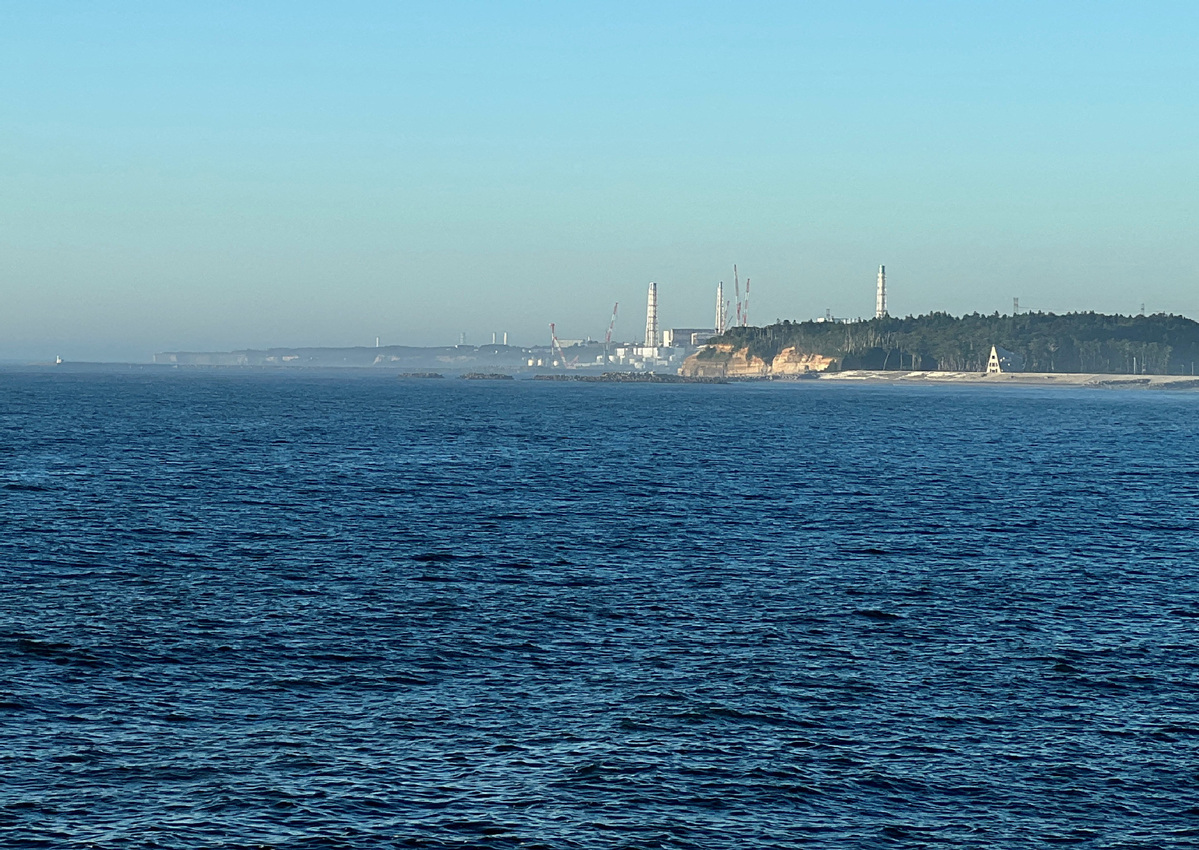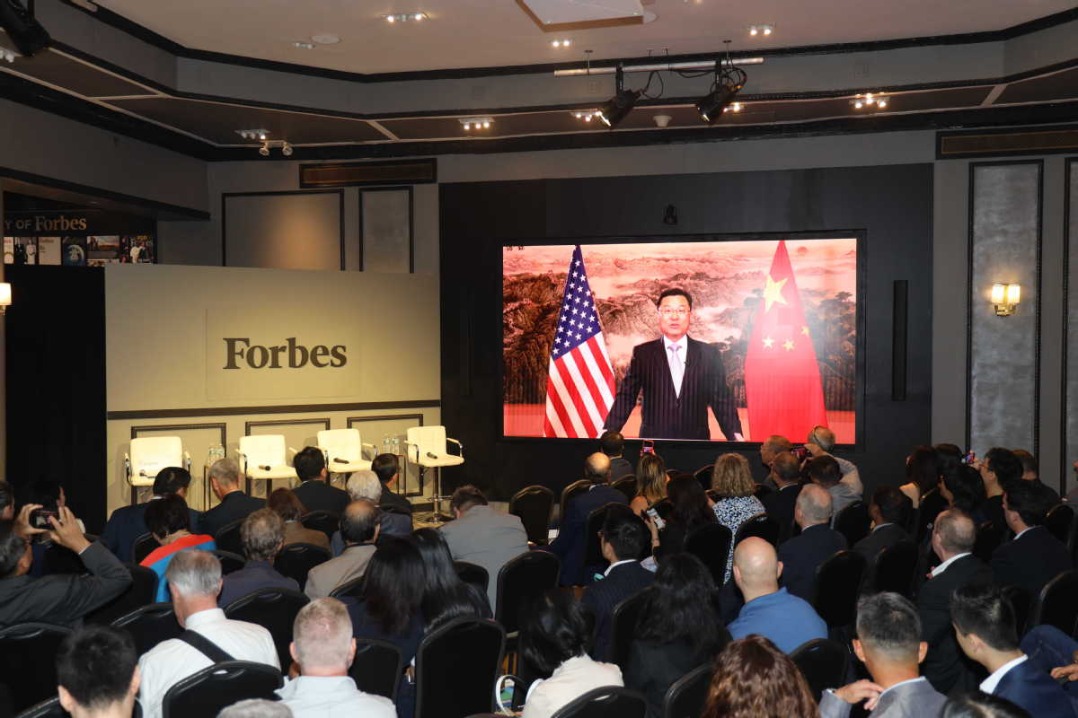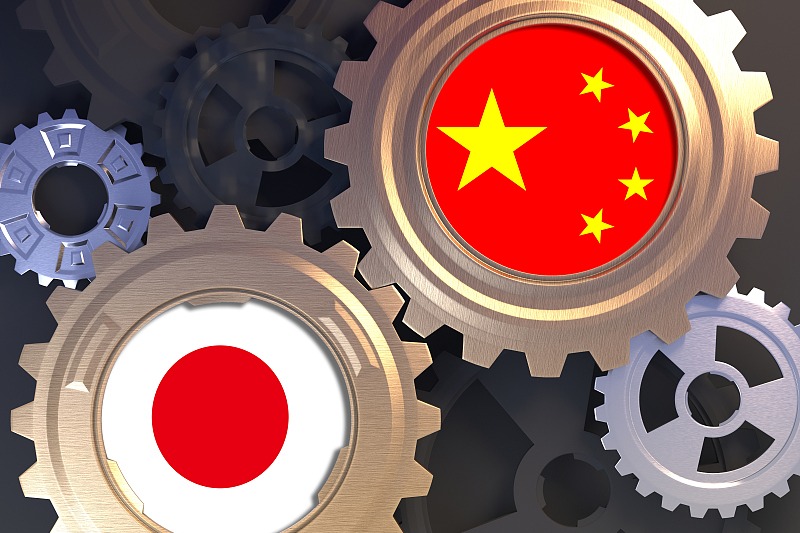Concerns rage over Fukushima discharge


Concerns and opposition persist as Saturday marks one year of Japan beginning to release contaminated water from the wrecked Fukushima Daiichi Nuclear Power Plant into the Pacific Ocean.
The date serves as a grim reminder of the environmental and economic impacts of a "deeply irresponsible" move, experts said. Despite assurances from Japanese authorities, skepticism remains as fears of long-term contamination and its consequences continue to grow.
Despite fierce opposition both at home and abroad, Japan began discharging so-called "treated" water from the nuclear plant into the Pacific Ocean, with the latest and eighth round carried out on Aug 7.
The Chinese embassy in Japan expressed its firm opposition to the irresponsible move, noting that it concerns the health of all mankind, the global marine environment and international public interests, which meant it was not a private matter of Japan.
The move to dump nuclear-contaminated water into the ocean "severely violates the international law" and is "highly irresponsible and selfish", drawing widespread condemnation from the international community, particularly neighboring countries that bear the brunt of the impact, Meng Xiaoxu, a researcher at the Institute of Japan Studies of the Chinese Academy of Social Sciences, told China Daily.
"Under international law, states have a duty to prevent harm and must minimize trans-boundary damage," Meng said, citing the Convention on the Prevention of Marine Pollution by Dumping of Wastes and Other Matter, adopted by the International Maritime Organization in 1972, to which Japan is a signatory. The convention aims to control and prevent marine pollution by prohibiting the dumping of hazardous materials.
Japan has violated other international laws such as the United Nations Convention on the Law of the Sea, adopted in 1982, Meng said.
South Korean environment activists staged a rally near a building that houses the Japanese embassy in Seoul on Wednesday to demand Japan stop the discharge. The country's opposition Democratic Party leader Lee Jae-myung denounced Japan's action as an "act of terror".
In April, Japanese civic groups submitted more than 180,000 signatures to the government, demanding an immediate stop to the release.
"The Japanese government has not effectively addressed the concerns of its citizens, or neighboring countries, and the international community," Wang Zhen, a research professor of international politics at the Shanghai Academy of Social Sciences' Institute of International Relations, told China Daily. The behavior is entirely "self-serving and harmful to others, driven by narrow selfishness at the expense of others", he said.
A significant leak of 25 tons of radioactive water detected this month at Fukushima, once again highlights the "management chaos "at Tokyo Electric Power Company, the operator of the plant, Wang said.
A massive earthquake and ensuing tsunami on March 11, 2011, severely damaged the nuclear reactors at the Fukushima plant, resulting in a level-7 nuclear accident, the highest on the International Nuclear and Radiological Event Scale.
In 2015, the government and TEPCO promised local fishermen and fishing federations that they would not dump nuclear-contaminated water into the sea "without the understanding of those concerned".
However, in 2021, the Japanese government unilaterally decided to discharge millions of tons of nuclear-contaminated water into the sea in 2023 after "treatment and dilution", a process that can continue for decades.
According to Wang, Japan initially adopted a cautious attitude. He added that the shift in 2021 was driven by the fact that TEPCO's storage tanks were projected to become full by autumn 2022.
Mitsuhisa Furuichi, a parliamentarian from the Fukushima Prefecture, said the Japanese government and TEPCO opted for what they call the "cheapest" way of getting rid of the nuclear-contaminated water.
The Japanese government set up a committee to determine what to do with the water, Furuichi told CGTN in April. "The committee decided that the cheapest way was to discharge the water into the sea. And since it could be done at a cost of 3 billion yen ($20 million) or so, they chose to do that … Also, about 80 billion yen was spent on 'reputation damage' control."
"The primary consideration for discharge is cost-saving, rather than the environmental safety of its citizens and the international community," Wang said. "TEPCO's spending on public relations, rather than investing in nuclear security and proper treatment, further highlights the 'narrow self-interest and opportunism' of both the Japanese government and TEPCO."
The "cheapest" solution turned out to be the "most costly" for the international community in terms of the nuclear risks borne by the whole of humanity, Meng said.
Without sufficient scientific evidence and transparency, the irresponsible discharge will inevitably result in serious consequences, Meng added.
The US State Department said in a statement in August last year the United States "is satisfied with Japan's safe, transparent, and science-based process".
"There is a clear tendency among Western countries to politicize the environmental issues surrounding Japan's move," Meng said. "From a strategic perspective, the US supports its ally Japan and sees potential benefits in deteriorating Sino-Japanese relations."
Some US politicians not only refrain from condemning Japan's discharge but criticize other countries' legitimate concerns and moves including the suspension of seafood imports from Fukushima, Wang said.
"Would the US and its Western allies remain as calm and 'satisfied'if other non-Western countries adopted similarly irresponsible practices as Japan?" Wang asked.

































